Heraldo Eucebio De Hoyos discusses how the group started and how he approached the music school to help supply the group with instruments.
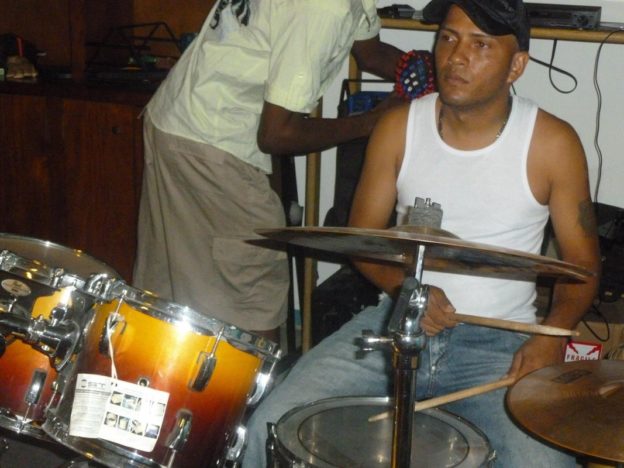


Heraldo Eucebio De Hoyos discusses how the group started and how he approached the music school to help supply the group with instruments.
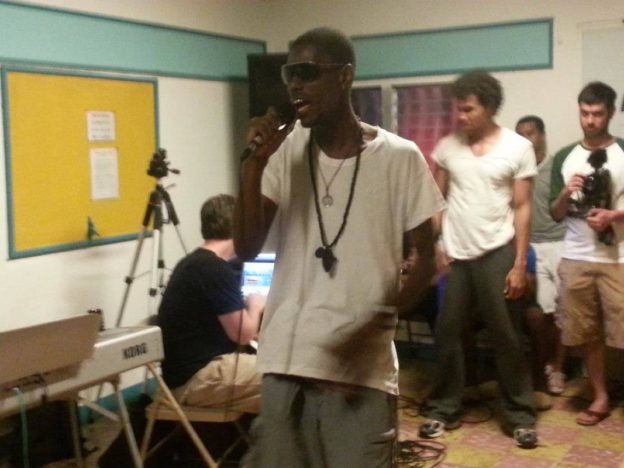
Eric Blanquicet maps the history of the comparsa sound in Portobelo through its origins in Santiago de Cuba and history in Panama. In doing so, he shares how the group based the sound on comparsa traditions in Colon but shifted it to better represent the uniqueness of Portobelo.
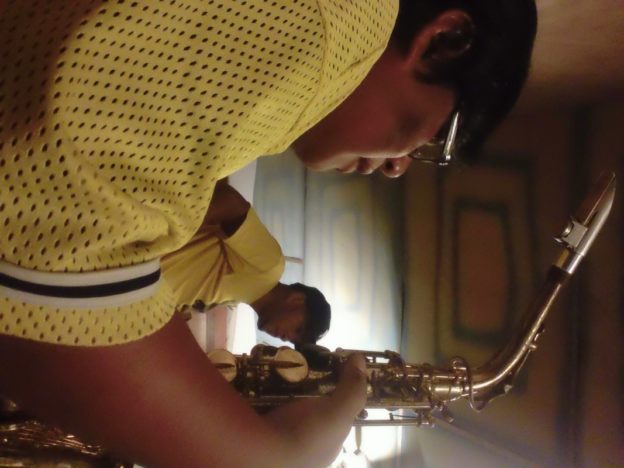
Eric Blanquicet and Heraldo Eucebio De Hoyos discuss the ways in which the desire to create something positive in the community — that allows community members additional outlets for their time and talent — is their chief motivation for participating in Comparsa Barrio Fino.
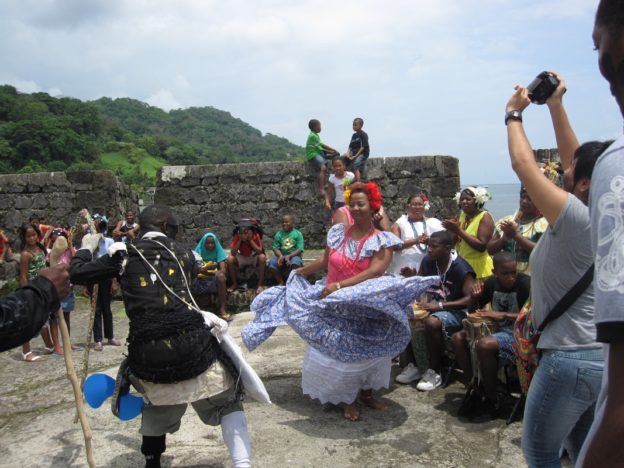
Heraldo Eucebio De Hoyos, Abdiel Valdez, and Eric Blanquicet discuss the relationship between Barrio Fino and Congo carnival.
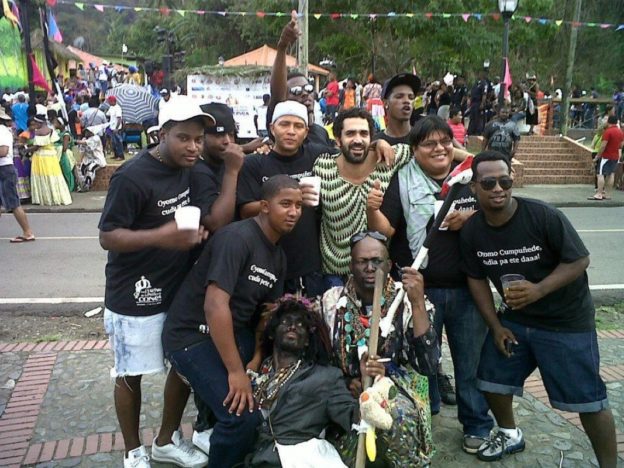
Heraldo Eucebio De Hoyos, Abdiel Valdez, and Eric Blanquicet discuss their favorite Barrio Fino memory or activity. All talk about the magic of their first public performance. In responding, Heraldo gives the spectrum of Portobelo personalities active with the group to illustrate how thoroughly it represents a broad spectrum of Portobelo culture and embodies the spirit of the community.
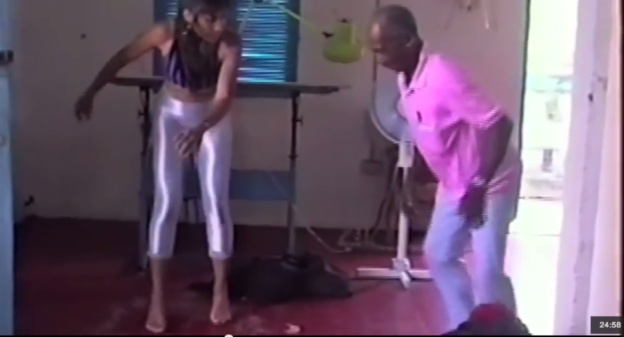
In this excerpt, Solís discusses studying the dance of the devil in 1994 under the tutelage of Celedonio Molinar, legionary Major Devil of Portobelo, Panama and receiving permission from the Congo King and Queen to dress and dance as a devil in 1995.
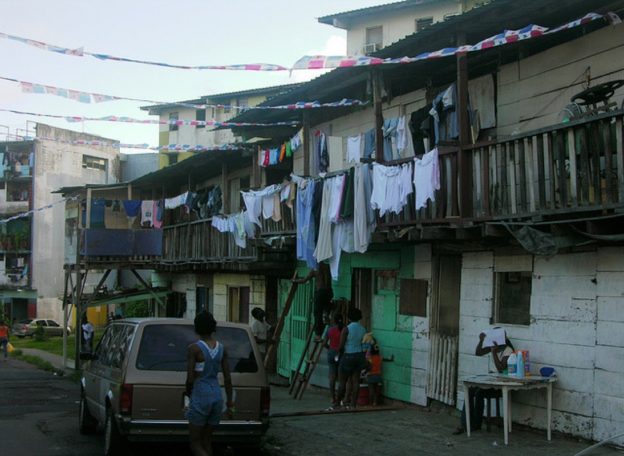
In this excerpt, Ileana discusses being raised by a hardworking middle-class mother within the economically impoverished neighborhood of Calidonia and the centrality of art to her personal development.
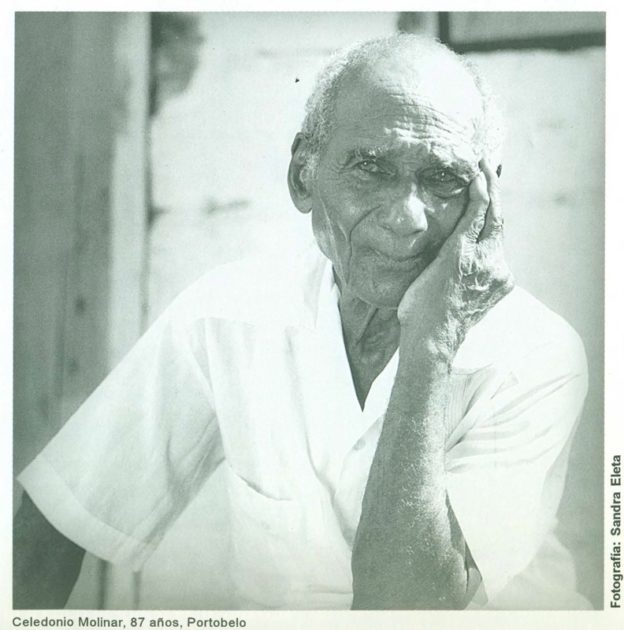
In this excerpt, Solís discusses what she believes is the legacy of Celedonio Molinar, renowned Major Devil in the Congo tradition of Portobelo, Panama.
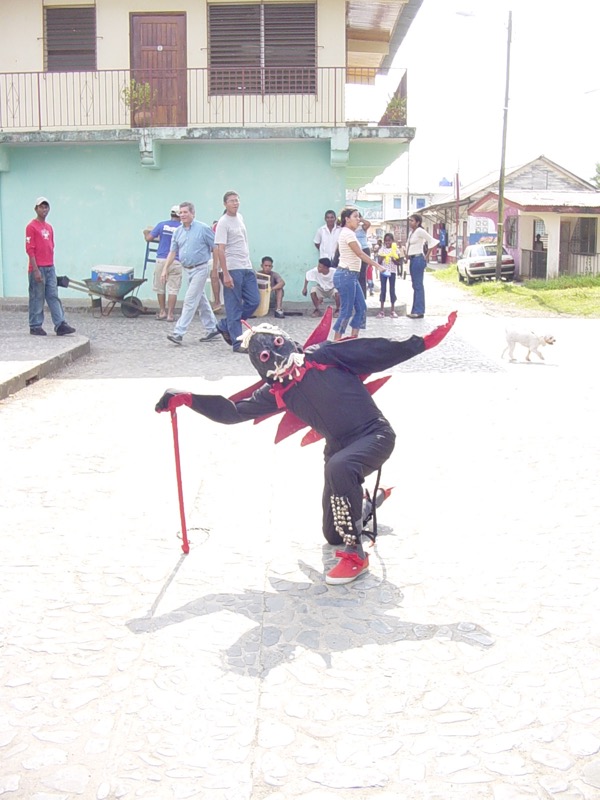
In this excerpt, Molinar discusses how he came to play the role of Major Devil in Portobelo. And how he reintroduced the practice of “Blessing” or “Baptizing” the Devil.
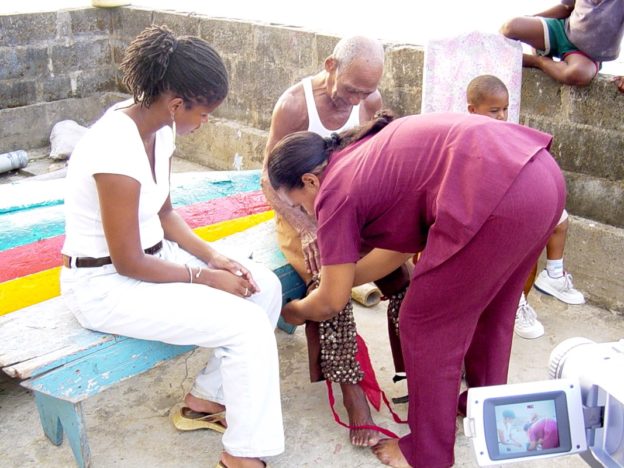
In this excerpt, Molinar discusses how he learned the role of Major Devil and the tradition of “Blessing the Devil” from a Portobelo native named Viudo Ceballos who had moved to Nombre de Dios. He also describes the way the devil tradition was practiced in Portobelo when he arrived there in 1945.